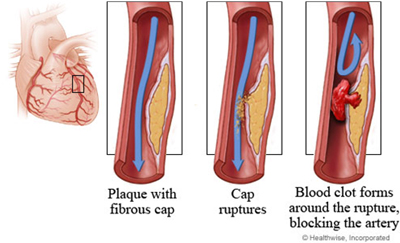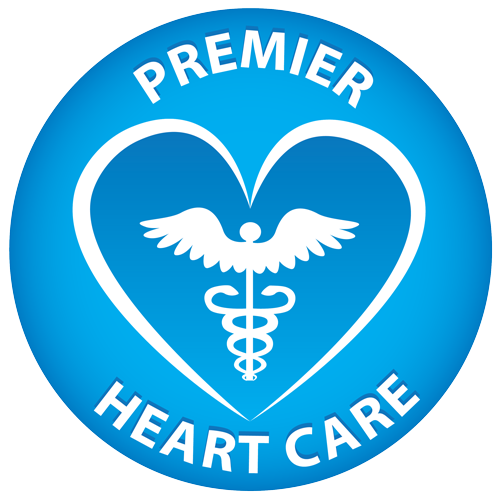
Symptoms of CAD
What is the most common symptom of coronary artery disease?
Chest pain or discomfort is the most common symptom of coronary artery disease (CAD). The pain or discomfort in CAD may also be felt in the arm, neck or jaw.
Coronary artery disease (CAD) is caused by atheromatous plaques in the coronary arteries that obstruct the blood supply to the left ventricle, the main pumping chamber.
What is the difference between angina and a heart attack?
Angina: A partial coronary artery blockage is not usually associated with heart muscle damage but typically causes chest discomfort during exertion known as angina.
Heart attack: A complete coronary artery blockage leads to heart muscle damage known as a myocardial infarction or heart attack. Patients may feel unwell and develop persistent chest discomfort associated with a bad feeling, sweating and breathlessness. A heart attack must be recognized early and treated promptly in hospital to avoid extensive damage.
What investigations are useful for diagnosis and management of CAD?
ECGs, blood tests, echos, exercise stress tests, cardiac CT and coronary angiograms are investigative procedures that may be useful for diagnosis and selection of the appropriate treatment for patients with CAD.
How is coronary artery disease treated?
Blocked arteries may be treated by medical therapy, coronary angioplasty or coronary artery bypass surgery. The following medications may be used:
- Aspirin is a commonly used antiplatelet drug that prevents blood from sticking together and forming clots that occlude the coronary artery.
- Clopidigrel or Ticagrelor are additional antiplatelet drugs.
- Beta-blockers suppress the heart rate and contractility.
- Nitrates dilate blood vessels including the coronary arteries.
- Trimetazidine is an anti-ischemic (anti-anginal) metabolic agent.
- Specific medications are used for controlling blood pressure, blood glucose and blood cholesterol.
- During a heart attack, thrombolytic drugs may be used to dissolve the clot occluding the coronary artery if emergency coronary angioplasty/PCI cannot be performed.



